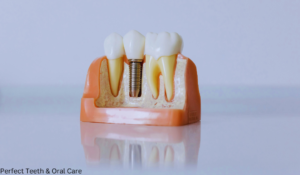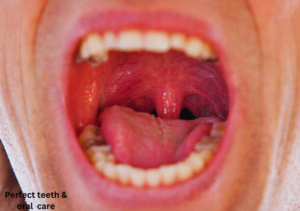When it comes to wisdom teeth removal, it’s a rite of passage for nearly every young person, usually during their late adolescent years or early twenties. The cost can vary depending on several factors like the complexity of the procedure and the specific circumstances of the patient. From an economic perspective, it can be challenging to foresee the total expenses as there are many elements that influence the price. In cases where the teeth are impacted, extra procedures like oral surgery may be necessary, making the removal pricier. A simple extraction might be affordable, but with complications, such as teeth growing in the wrong direction, the cost can quickly rise. It’s important to understand these financial implications and plan ahead, so the cost of wisdom teeth removal doesn’t come as an unexpected burden.

What are Wisdom Teeth?
Wisdom teeth are the third and final set of molars that most people develop in their teens or early twenties. Sometimes, these teeth emerge without causing any problems, but often, they can lead to issues like being impacted, growing in the wrong direction, or causing overcrowding in the mouth. When something anomalous happens with them, extraction becomes necessary to avoid further complications. It’s a common situation, and the need for extraction is something many face as part of growing up.
Does insurance cover wisdom teeth removal?
If you’re preparing for wisdom teeth removal, understanding how insurance plays a role is key to managing the costs. Many dental insurance plans offer coverage for this procedure, but the specifics can vary greatly based on the plan and the area where you live. It’s recommended to check with your dental insurance company to see what’s included. Some insurance carriers require you to find in-network dentists or an oral surgeon to save money, as these professionals provide discounts for Delta Dental subscribers. With an in-network dentist, your co-payment is based on the discounted fee, while out-of-network dentists may charge a percentage of their full, non-discounted fees.
Before moving forward with the procedure, it’s wise to utilize a dental treatment cost estimator to get an exact estimate. You can also request a pre-treatment estimate from your insurance carrier, which is determined following a case review. This process includes reviewing details provided by the dentist, such as the diagnosis, radiographs, and the proposed treatment plan. Your insurance company will then assess your benefits, deductible, eligibility, and annual maximum payment to calculate how much of the cost will be covered.
Keep in mind that wisdom teeth extractions can come with unique challenges. Policies may include a waiting period before costs are covered, especially if you’ve only recently become covered under a new dental insurance policy. For example, if your annual limit is $1,500 and the total bill for the procedure is $6,000, your yearly maximum could be quickly met, leaving no benefits for the rest of the year. Always verify the waiting period and ensure it’s met before scheduling your wisdom teeth extraction.
What Affects the Cost of Wisdom Teeth Removal?
There are several variables that can impact the wisdom teeth removal cost. Identifying and understanding these factors can help young adults and parents plan their finances more effectively, reducing the fiscal anxieties often associated with the procedure. The cost may vary based on the complexity of the extraction, the number of teeth to be removed, and the location of the dental office. Being aware of these details in advance can make the whole process less stressful and help you prepare financially.
Level of Complexity
The level of complexity in a wisdom tooth removal can significantly affect the cost. A simple extraction is usually the least expensive. If the wisdom tooth has fully emerged and is in good alignment, the procedure tends to be straightforward and costs less. On the other hand, when the tooth is impacted, meaning it has not fully emerged, is poorly angled, or is twisted, the extraction becomes more challenging. This makes the procedure more complex and, therefore, pricier.
Number of Wisdom Teeth
The number of wisdom teeth a person has can directly impact the cost of the wisdom teeth removal procedure. While most people have four wisdom teeth, the number can vary. If more teeth need to be removed, the cost will naturally increase, as the procedure becomes more extensive.
Average Wisdom Teeth Removal Cost
United States: In the United States, the average cost for a single wisdom tooth extraction without insurance typically ranges from $1,000 to $3,000. This estimate covers the consultation, the extraction procedure, and any required post-operative care.
United Kingdom: In the United Kingdom, the cost typically ranges from £200 to £495, depending on the complexity of the case. The difficulty of removing upper and lower teeth can vary based on individual circumstances.
Germany: In Germany, the cost of wisdom teeth removal varies between €100 and €300 for a simple extraction. For complicated cases, the price can range from €350 to €800 per tooth. Additional costs such as pre-surgery exams, anesthesia, and aftercare services can increase the overall expense to anywhere from €500 to €3500, depending on the procedure’s complexity and the clinic’s fees.
Canada: In Canada, the cost for wisdom teeth removal generally ranges from CAD 100 to CAD 400 for a simple extraction. More complex extractions can increase the cost to CAD 500 to CAD 1000 per tooth. With added fees for consultations, anesthesia, x-rays, and follow-up care, the total cost can range from CAD 500 to CAD 5000, depending on various factors like the province and the severity of the extraction.
Brazil: In Brazil, the cost of wisdom teeth removal is typically more affordable, with prices ranging from BRL 300 to BRL 800 for a straightforward extraction. If the procedure is more complicated, costs can rise to BRL 1000 to BRL 2500 per tooth. Additional costs for anesthesia, x-rays, and consultations can increase the total amount, with overall expenses ranging from BRL 500 to BRL 3000 depending on the complexity of the extraction and the region.
FAQs
How much does it cost to remove wisdom teeth in US without insurance?
The average cost for removing a single wisdom tooth without insurance typically ranges from $1000 to $3000. This estimate covers the consultation, the extraction procedure, and any required post-operative care.
Will insurance cover wisdom teeth removal?
Many dental insurance plans provide coverage for wisdom teeth extractions, usually covering between 50% to 80% of the dentist’s or oral surgeon’s fees. However, this coverage is typically subject to deductibles and co-pays.


